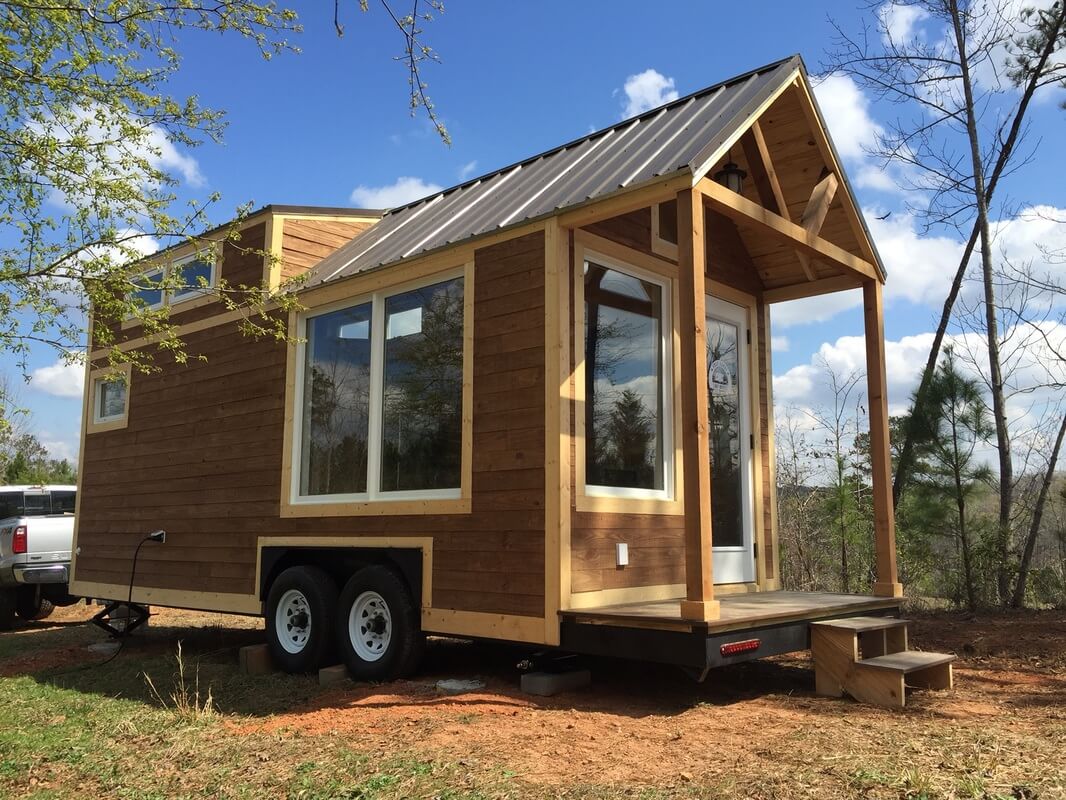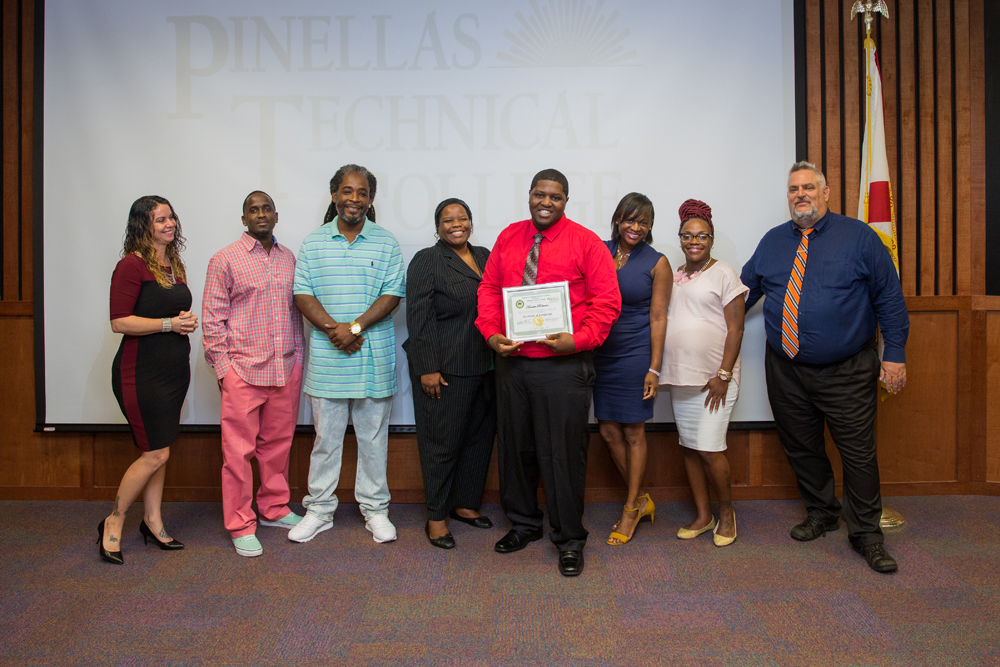A little after 10 a.m. on Sept. 18, Keondre Robinson stands before an audience in a suit and tie he picked out more than a week ago. His family has been calling him all morning, double-checking the time and clarifying the address. He’s excited. He has spent the past few months learning to build tiny homes at Pinellas Technical College in St. Petersburg; his classes covered everything from foundations to drywall techniques. After a hot St. Petersburg summer, he takes pride in his accomplishment and is happy to move on to paid employment. He and seven of the 12 other graduates of the program already have secured jobs with their newly earned certifications.
Robinson is among those in the second round of graduates from the Second Chance Tiny Homes program for ex-offenders seeking new skills to enter the workforce. According to Antonio Crockett, a graduate of the inaugural program in March, the effort goes beyond learning electrical and plumbing and helped him to “keep learning and growing” past the technical skills he gained.

Still, come November, Robinson and Crockett will be unable to participate in a basic American process. Neither is allowed to vote.
The men’s celebration and publicity for their efforts come at an auspicious time in Florida, where voters are being asked to decide whether to restore some civil liberties to ex-offenders who have served their time and paid their debts. A proposed amendment to the state constitution, known as the Voting Restoration Amendment, or Amendment 4, calls for automatically reinstating “the voting rights of Floridians with felony convictions after they complete all terms of their sentence including parole or probation.” The amendment doesn’t apply to murderers or sex offenders.
Currently, convicted felons in Florida are stripped of a number of privileges, including the right to vote, serve on a jury and hold public office. These restrictions apply until five to seven years after they have served their sentences. After that, they can apply to the state’s Office of Executive Clemency. Applicants are screened for eligibility, investigated and sent to the clemency board for a final decision on a potential pardon from the governor. According to PolitiFact Florida, only 10 percent of the 30,000 who have applied have been recommended for pardon.

Where does Florida stack up with the rest of the United States? There’s no federal precedent; individual states set the bar. The range varies: Maine and Vermont offenders never lose their voting rights. The Sunshine State is one of only four that do not automatically restore voting rights after felons have completed their sentences. Earlier this year, U.S. District Judge Mark Walker deemed Florida’s process to be unconstitutional.
Housing and work opportunities are but two of the many qualities of life that are affected with a conviction of any kind across the country. As Mike Jalazo of the Pinellas Ex-Offender Re-entry Coalition (PERC) points out, what’s on the ballot this November for Amendment 4 won’t help with the restoration of other civil liberties.
Robinson is well aware of that as he stands before a room of his proud family, friends and faculty to celebrate his new skills. But as Heather Nix, program manager for Second Chance Tiny Homes points out, the measure does help change the conversation while programs such as the tiny homes effort bolster skill sets for ex-offenders so they may more easily find work..
What can you do? Do your research, figure out where you stand, and vote on November 6.
For more information on the 2nd Chance Tiny Homes program through PERC, visit http://secondchancetinyhomes.org/
To learn more about Amendment 4, visit https://ballotpedia.org/ Florida_Amendment_4,_Voting_Rights_Restoration_for_Felons_ Initiative_(2018)



